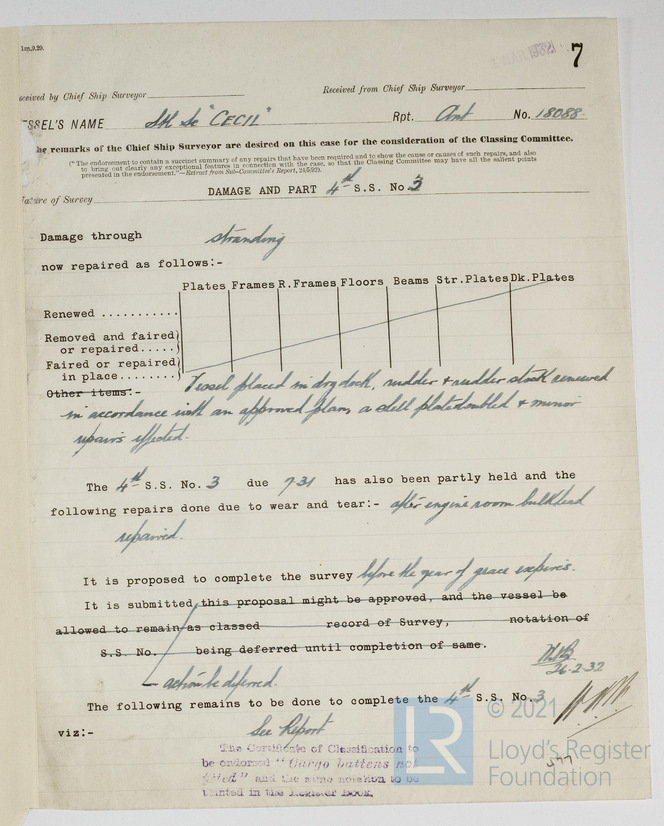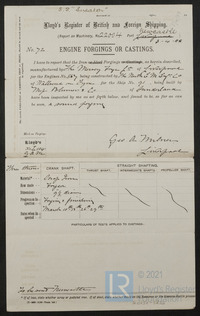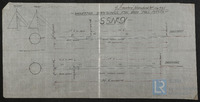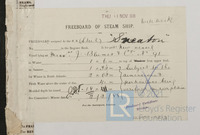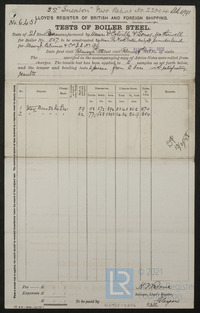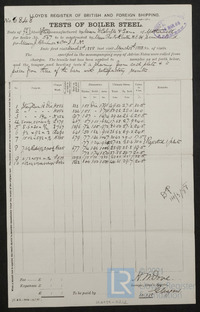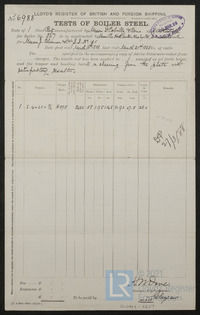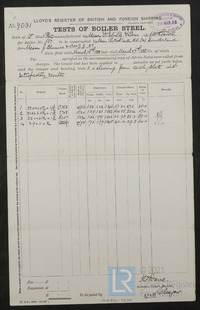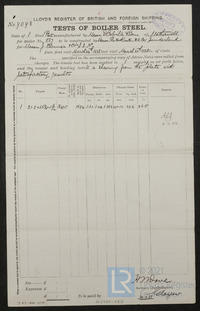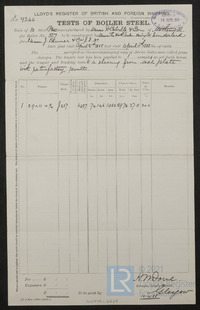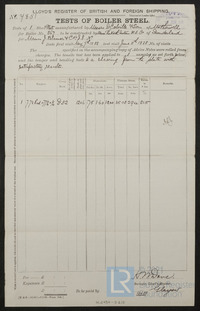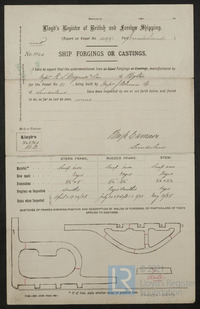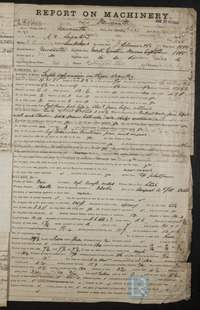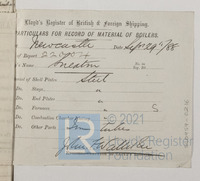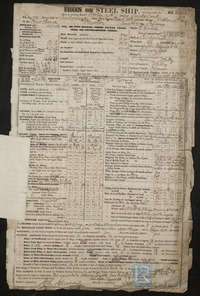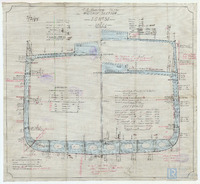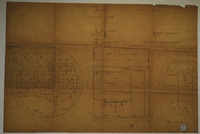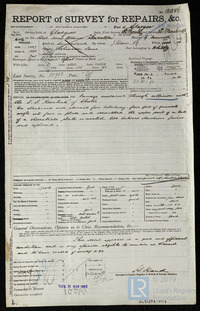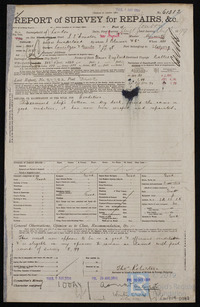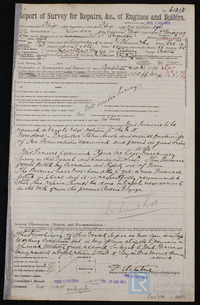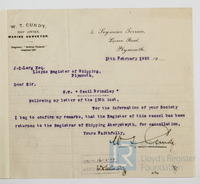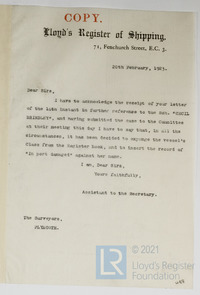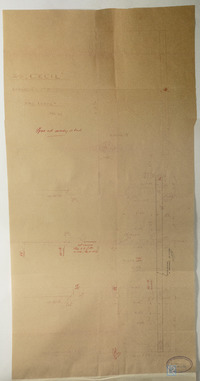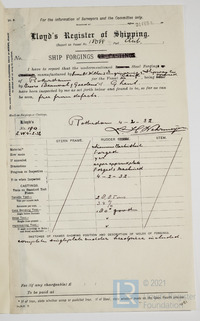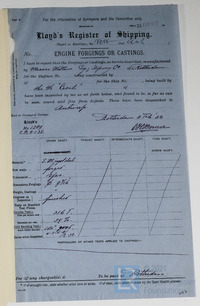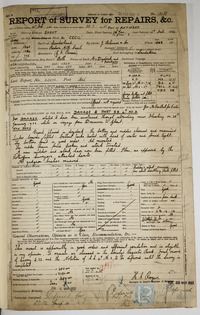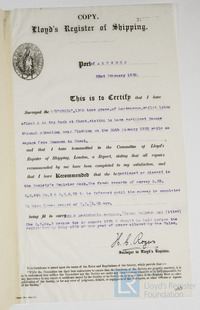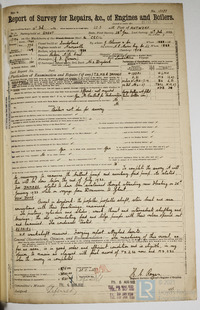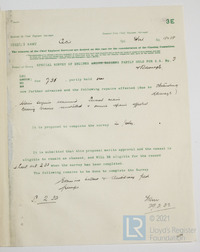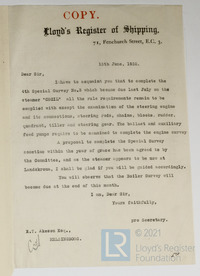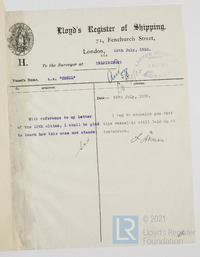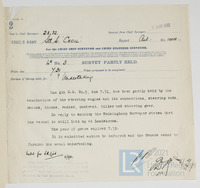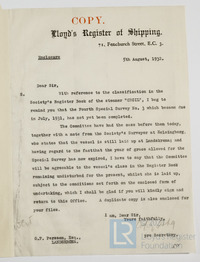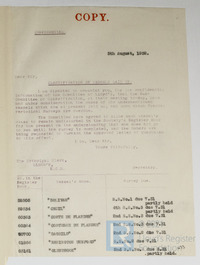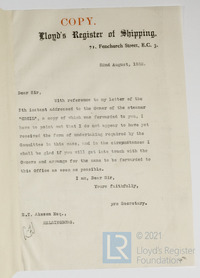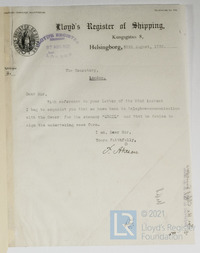- Related documents Related
- Full details Details
- Report document? Report?
Use the data export button to extract customised data sets from the Ship Plan and Survey Report Collection. Available in TSV and CSV formats.
Date recorded as the time of writing.
26/02/1932
The year in which a vessel’s construction is completed.
1911
The individual and/or organisation listed as having been responsible for constructing the vessel. This can/may be the same as the owner and/or manager.
Flensburger Schiffsbau Gesellschaft
The port or place in which the vessel’s construction took place, at the time of writing.
Flensburg
Other/additional record(s) specifically mentioned, referenced or associated to another record.
Antwerp 18088
Broad categories and subdivisions of vessels related to their purpose or function.
undefined
Is the steamer assisted by sail?
No
A ship’s total internal capacity of a ship measured in register tons from the top of the floors to the tonnage deck.
1084
Type and configuration of the engine(s) supplied for a vessel.
Triple Expansion 3 Cylinders
Date in which construction of a vessel’s engines were completed.
1888/10/__
Confirmation as to whether the vessel was equipped with refrigeration machinery to aid in the transport of frozen or chilled cargo/goods.
No
Does the vessel possess an auxiliary power source?
No
Is electric lighting fitted to the vessel?
No
Used to indicate the capability of early reciprocating steam engines, based on dimensions rather than performance. It is not a true indication of actual engine power.
147
Vessel’s place of loss or disposal/last known recorded location.
26 miles off Spurn
The country or national waters where a vessel is lost/disposed of, or last recorded.
United Kingdom
Prescribed by flag/registration authorities, and usually excludes a small part of the stern. It is measured from the foreside of the stern at the extreme top to the afterside of the stern post.
250
Measurement from the underside of the upper deck on the centre line to the upper side of the bottom plating.
15.6
Name of ship as recorded on the record
Cecil, 1888
The process of transferring a vessel to water, but not necessarily her completion.
__/__/1911
Unique identifier for a given ship, it is assigned by a builder.
307
Official administrative title (often printed) of a record used by Lloyd’s Register or external organisations.
Memo
Records that constitute Lloyd’s Register’s first official encounters with a specific vessel, e.g. a survey report.
N
A vessel’s means of propulsion.
Steam
System of measurement that replaced ‘Builder’s Old Measurement’, taking a vessel’s internal capacity as the standard. Vessels built between 1836 and 1854 were legally required to display both tonnages.
1340
Tonnage derived by deducting from the gross register tonnage the capacity that in unavailable for cargo, e.g. machinery space, fuel, crew accommodation etc.
776
Location of construction for a vessel’s engines.
Newcastle
North Eastern Marine Engineering Co Ltd
Is machinery fitted at the aft of the vessel?
No
Generally a smaller additional auxiliary boiler (often used while the vessel is at port).
No
Name of the Proving House responsible for the public testing and certification of a vessel’s anchors and/or chain cables.
No
Contextual information related to the reasons of the vessel’s loss or disposal.
Foundered
Vessel’s area of loss or disposal/last known recorded location.
North Sea
Recorded date for the vessel’s loss or disposal.
23/10/1921
Also referred to as extreme breadth. The distance from the extreme starboard side to the extreme port side.
35.5
Physical extent of a record.
1
Report an issue with this document
Have you noticed missing or incorrect data or images for this document?
Please let us know and we will rectify the issue as soon as possible.

